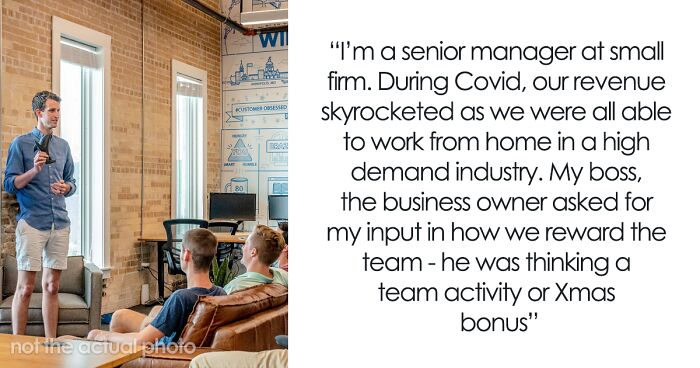
Manager Shares How He Chose To Reward His Employees Instead Of A Christmas Bonus And People Applaud Him
One study from the Journal of Human Performance showed that working adults who had a challenging mental task to do performed better in pursuit of a non-materialistic incentive than of a cash incentive of equal cash value. The results are pretty surprising, because participants stated they would prefer to receive the cash award.
And as the end of the year is approaching, and the businesses measure and reflect on their yearly performances, it’s only fair to think of rewarding your team for all the work and effort they put in. After all, a lack of recognition will likely put an end to a person’s motivation and productivity.
So this story from a “senior manager at a small firm” sets a wonderful example of how to thank the team for great performance in order to make people genuinely happy. And while the author’s boss was thinking of “a team activity or Xmas bonus,” the manager had an entirely different idea in mind.
Read his whole post shared on the corner of Reddit that basically sums up that, before anything else, we all want to have more space in our personal life. And how it changes everything if we’re given a chance to have it.
One senior manager at a small firm has recently shared how he decided to reward his team of employees who made their revenue skyrocket during the pandemic
Image credits: Austin Distel (not the actual photo)
Hans Schumann, an international Executive Career & Life Coach with a background in law and financial services going back 20 years, told Bored Panda that when it comes to rewards, it’s important to understand that we are not all motivated by the same things.
According to him, the best way to motivate staff is to find out what rewards they value on a person-by-person basis and then offer bespoke approaches. Examples of non-financial rewards could be: praise/recognition; additional responsibilities (for some it’s a reward, for others an additional worry!); promotion; time off work; flexible work arrangements; office party; access to learning/coaching.
“What all of the above approaches have in common is that they are extrinsic measures of motivation that need to be repeated continuously to maintain staff engagement,” Hans said and added that “They will never be as powerful as intrinsic motivation, which we experience when we can see that our job is meaningful and can be part of our own chosen purpose in life.”
So the manager put up the unusual reward proposal for his boss which balanced work and employees’ personal lives
We also spoke with Christine Mitterbauer, a licensed and ICF-approved career coach and serial entrepreneur, who said that “both from my work as a career coach, and hearing firsthand what’s important to employees in all the companies I’ve worked at, I can confirm that rewarding great performance and initiative is hugely important.”
According to her, the rewards can come in many forms, and the financial element often isn’t the most important. “The majority of people want to feel like their work is valued and makes a difference. The biggest demotivating factor for most employees is feeling like their work is pointless or not appreciated, and to many this is more important than the money factor,” she explained.
After the proposal got accepted by the boss, it transformed the team for the better
Christine explained that the non-cash incentives include investing in training and development of the employees. “This could be a specialized course, relevant for their particular role or the likely next role they are aiming for. It could also be a budget allowance for career coaching or other types of more holistic and big picture personal development.”
“Other incentives include allowing flexible working, whether this means deciding the hours you work, or working mostly from home. Stock options are also popular in some, especially smaller and fast-growing firms.” The career coach added that “last, but definitely not least, employees genuinely value positive feedback and appreciation for their hard work from their managers, and this doesn’t even cost the company a dime.”
Sadly, not everyone could share similarly positive experiences about getting rewarded at work
When asked if an employee can lose motivation if not recognized for their work by the management, Christine said that this “absolutely happens a lot when the employee isn’t getting any feedback or words of appreciation from their manager for their work.”
The career coach argues that “it doesn’t always have to take a lot or involve big or even any financial investment, the most important things are genuine words of appreciation, as well as positive and constructive feedback which the employee can use to improve their work with in future.”
This new maintenance manager set an example of what it’s like to be a good manager and it may inspire others
It comes down this. Does your company treat employees as an asset or a disposable problem?
One of the places where my husband and I worked was run by a nice couple that were sweet and very understanding of family. They originally developed the business to create revenue while they worked on computer programs for specialty applications. They eventually sold it for a few million bucks and decided to sell the side business too. The man who bought it moved us 45 minutes away to another city in a building that he leased and basically dropped every penny he had in it. The result was high stress, no pay raises, no promotions and us being treated like animals on display in a zoo every five minutes. It's no wonder that over half the staff quit in the first year putting him in even a further financial bind. Needless to say, the company did not last.
I will never understand how anyone can think "oh this company makes a lot of money. Lets buy it and change everything. That will work!"
Load More Replies...This is great for the company in many ways. The employees would be more mentally and emotionally relaxed boosting their performance in the long run. This would probably increase the amount of hired people in the company
It comes down this. Does your company treat employees as an asset or a disposable problem?
One of the places where my husband and I worked was run by a nice couple that were sweet and very understanding of family. They originally developed the business to create revenue while they worked on computer programs for specialty applications. They eventually sold it for a few million bucks and decided to sell the side business too. The man who bought it moved us 45 minutes away to another city in a building that he leased and basically dropped every penny he had in it. The result was high stress, no pay raises, no promotions and us being treated like animals on display in a zoo every five minutes. It's no wonder that over half the staff quit in the first year putting him in even a further financial bind. Needless to say, the company did not last.
I will never understand how anyone can think "oh this company makes a lot of money. Lets buy it and change everything. That will work!"
Load More Replies...This is great for the company in many ways. The employees would be more mentally and emotionally relaxed boosting their performance in the long run. This would probably increase the amount of hired people in the company

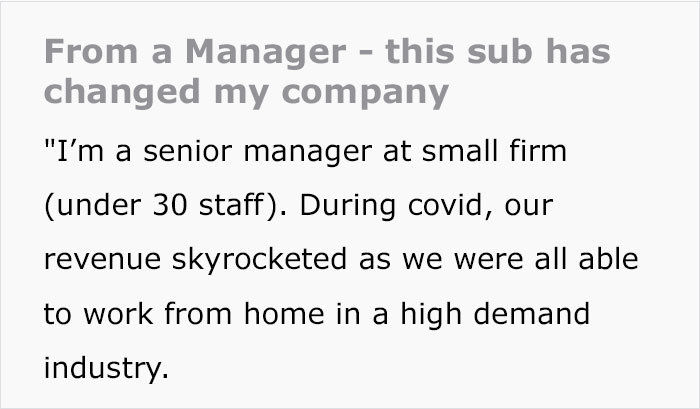
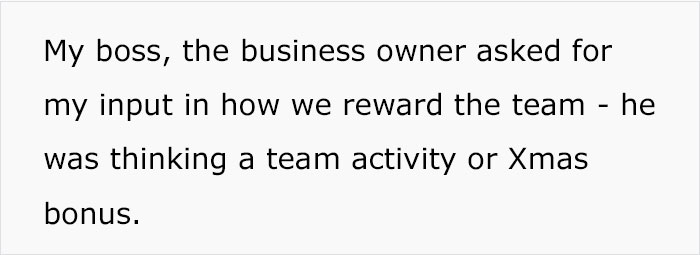
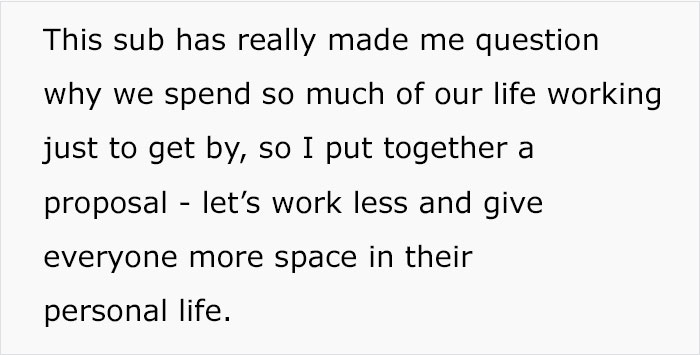
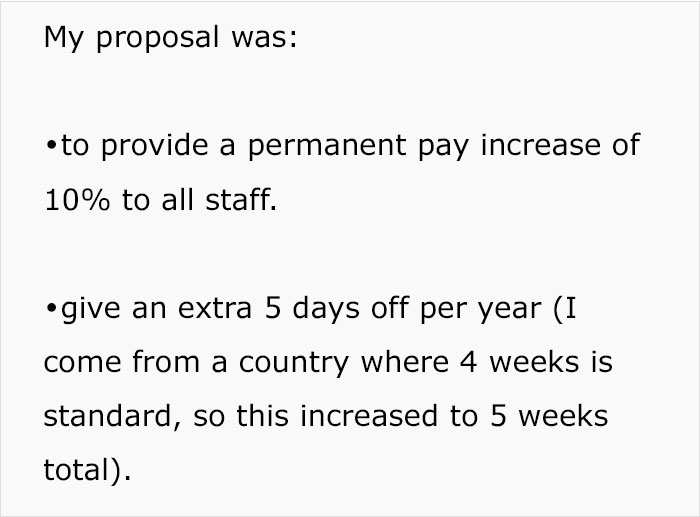
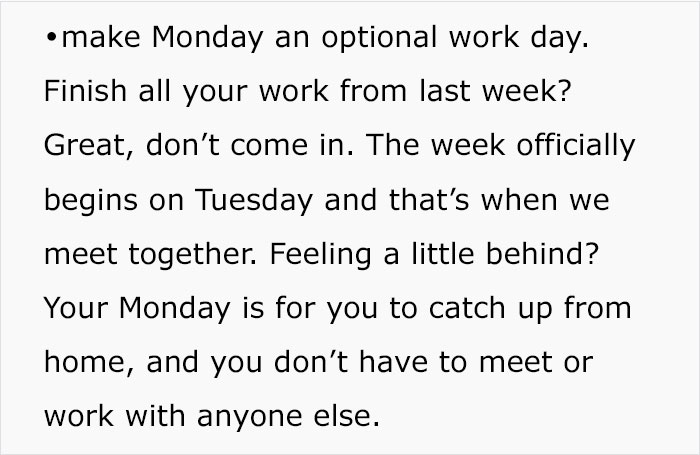
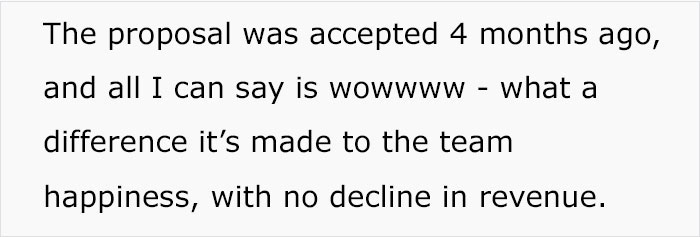
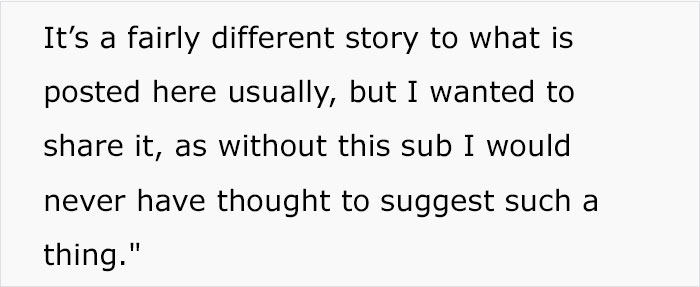

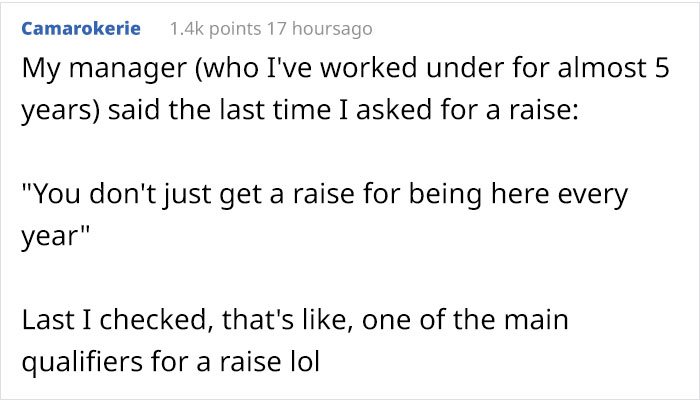


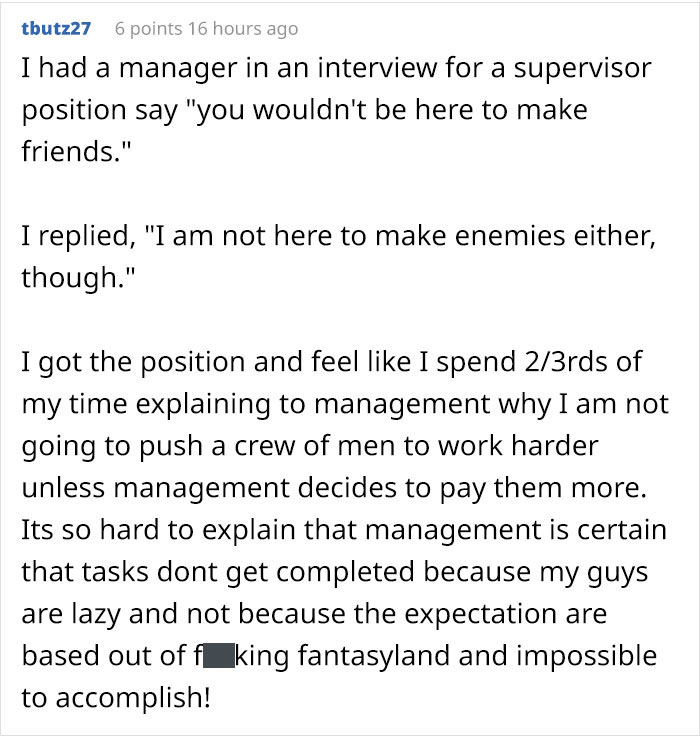
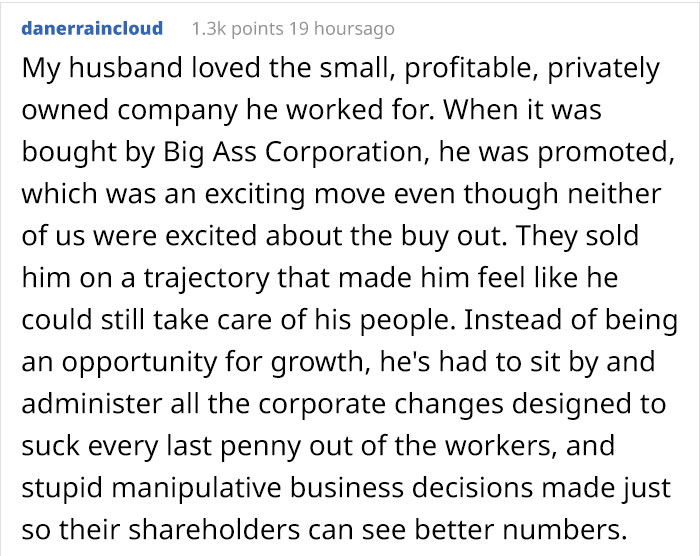
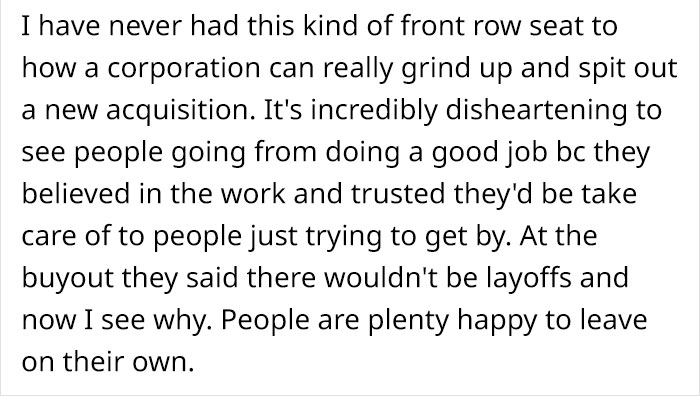
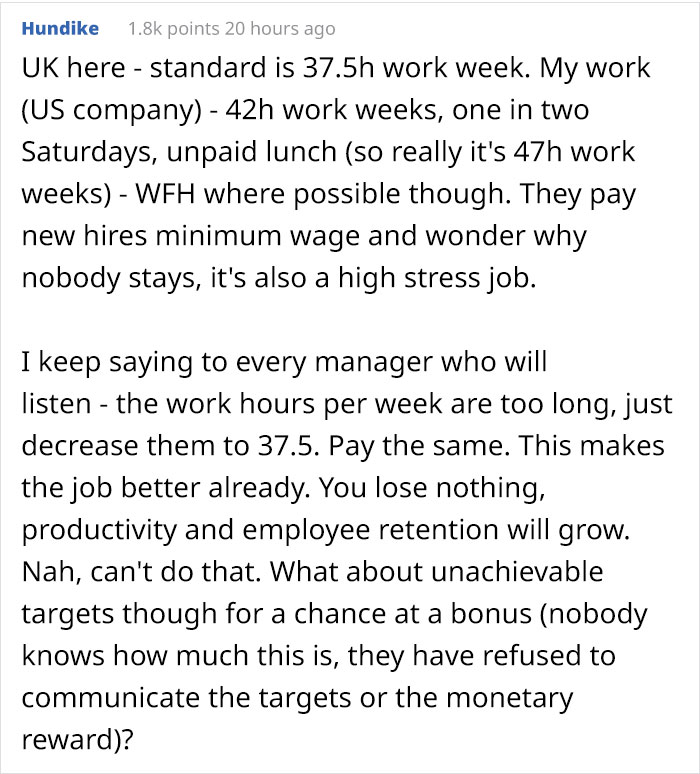
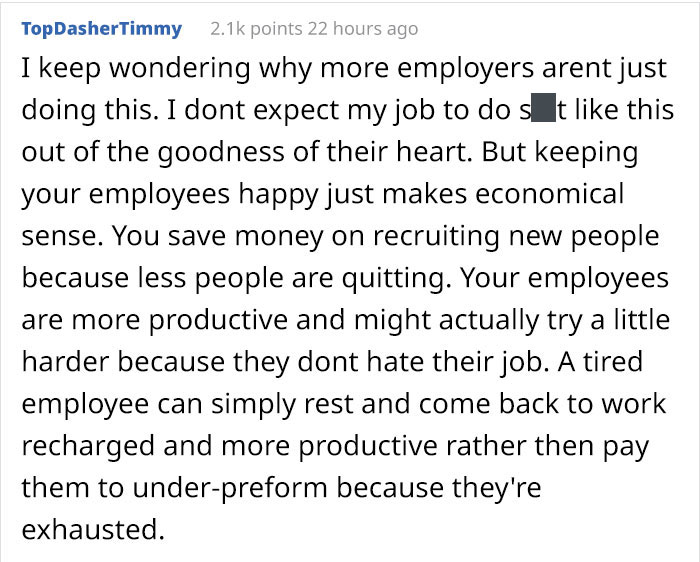
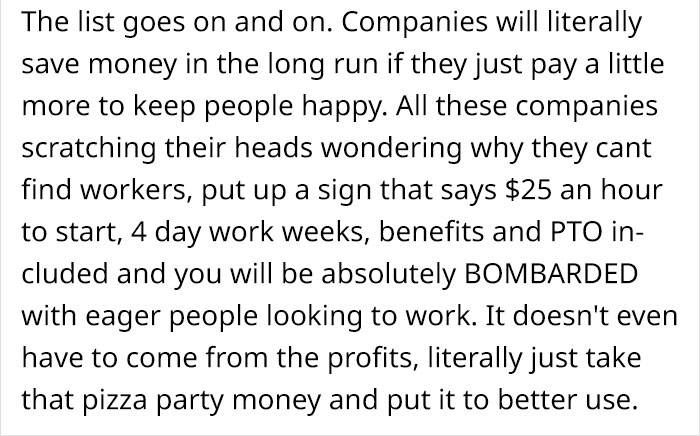
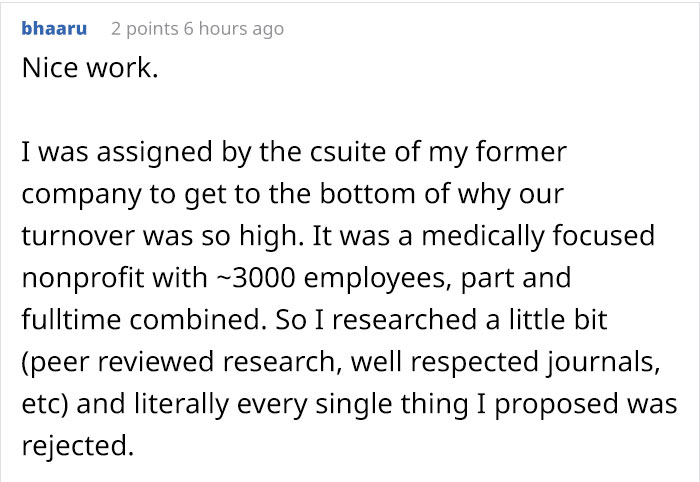
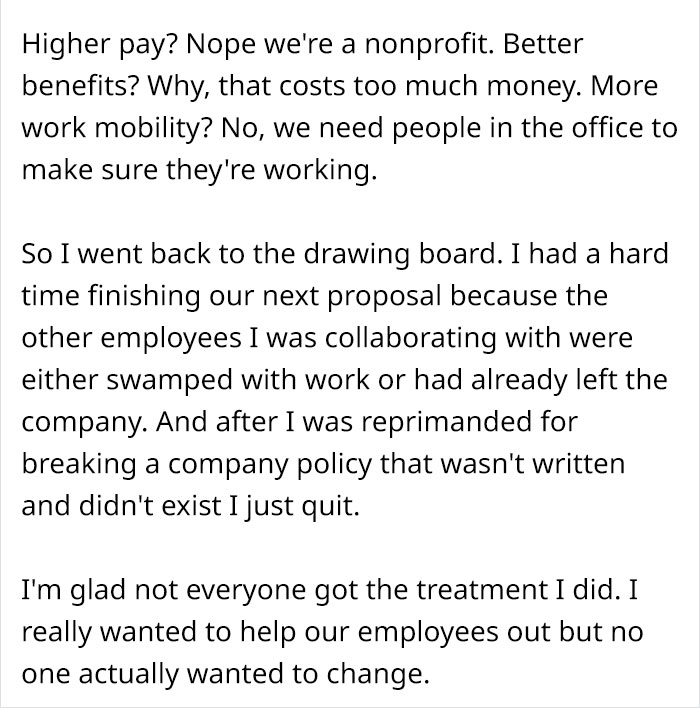
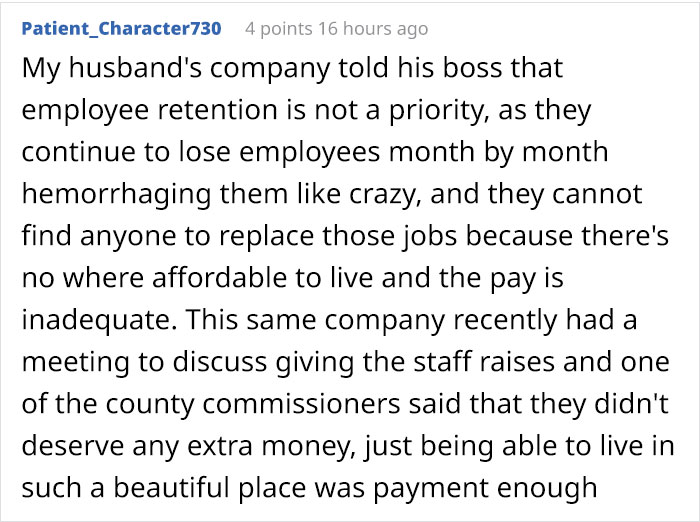

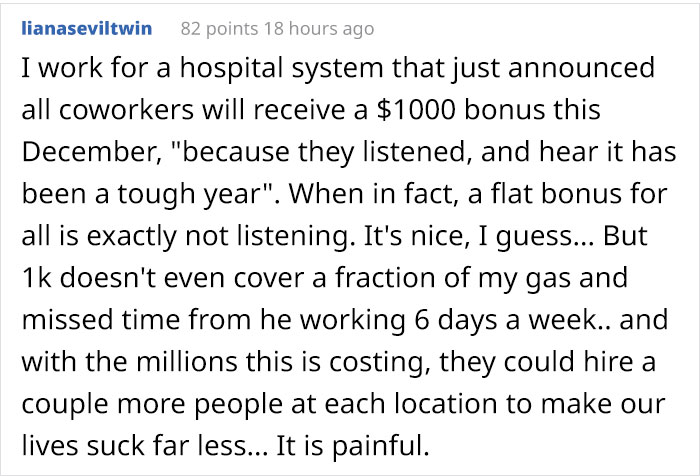
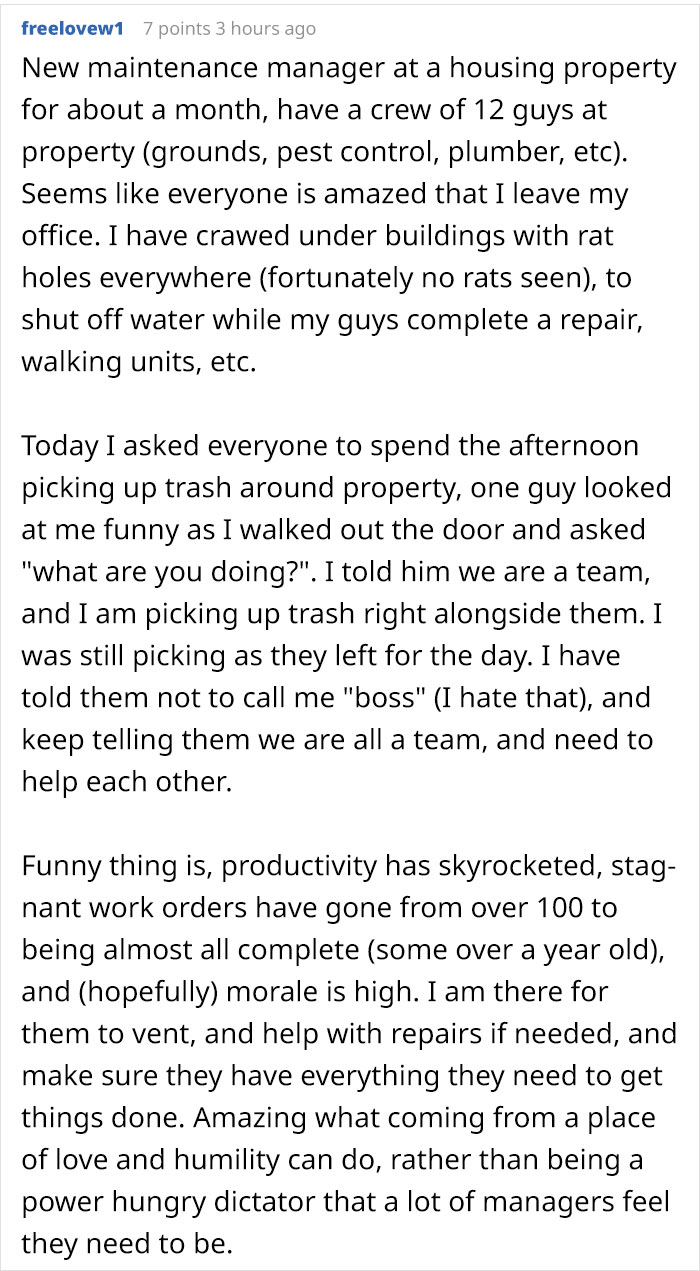




149
18